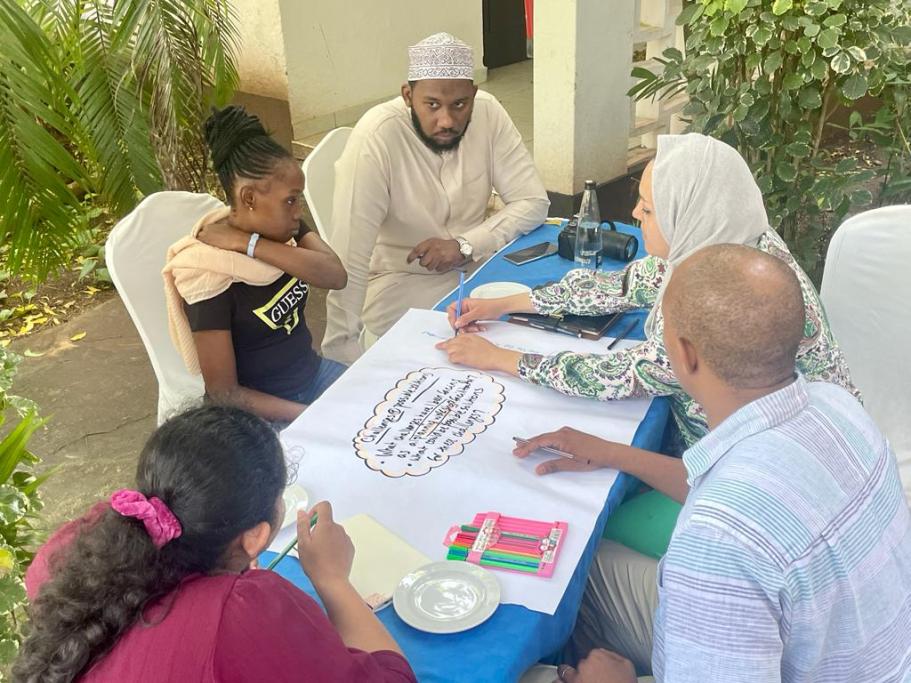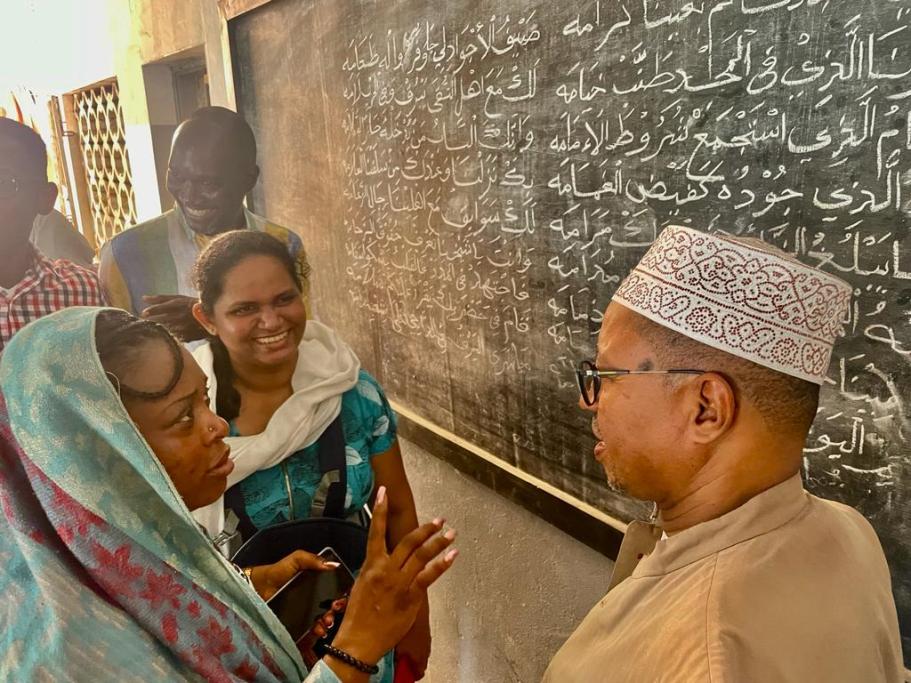The Civil Peace Service (CPS) is a program for violence prevention and peacebuilding, funded by the Federal Ministry for Economic Cooperation and Development. The CPS is implemented by nine German organizations - one of which is AGIAMONDO. Within the CPS, AGIAMONDO recruits and dispatches specially trained development workers to regions affected (or previously affected) by conflict. They work together with local partner organizations on a long-term basis to resolve conflicts non-violently, and to promote human rights and peace.
AGIAMONDO’s CPS WebMo is a monitoring and collaboration platform for the 14 CPS country/ regional programs in Africa, Asia, Europe and America. Their monitoring approach is similar to Outcome Mapping. The information from a total of more than 100 projects is added to the platform decentrally and in four languages. The platform is not only used for global monitoring, but also for internal CPS information and knowledge management. Other features, such as a partner database, a Lessons Learned and a Stories of Change section promote dialogue and exchange between partner organizations on good practices in violence prevention and peacebuilding.
We spoke to Wolfgang Demenus, who has been working for AGIAMONDO since August 2020 as an advisor for outcome orientation in the CPS.
Why did your organization choose WebMo?
One of my tasks as an advisor for outcome orientation in AGIAMONDO’s CPS program is to establish cross-national digital monitoring and a knowledge management system. We were looking for a platform that would not only add value to outcome-oriented program or project management, but could also be used for learning and exchange between projects. In addition, the platform was meant to provide input for our advocacy and public relations work, as well as that of our partners, i.e. support the communication on outcomes and success stories. What distinguished WebMo from other providers was the combination of monitoring and information/knowledge management in one platform.
Another important aspect for us was the user rights management system, i.e. clarifying which types of users should have which rights to read, delete and edit information in which areas. In the CPS WebMo, we work with project-specific user groups (Project Admins), program-specific user groups (Program Admins) and Sysops. Since certain data is sensitive in human rights work, we have designed the read rights on the platform accordingly and, for example, given the project teams the option of defining whether access to uploaded documents should be granted to their project team only, to other users in the same program or to all global users.
What are some of your favorite features?The Stories of Change tab has become popular with both our CPS workers and partner organizations. I am always happy when they post something new, be it a write-up or short videos. We realized that a comment feature would make it more interactive and are now working on that together with energypedia consult. The cloud library is also being used more and more for sharing documents. We rely on our local APME advisors to support and advise our partner organizations on WebMo. As a global APME Community of Practice, they are also using the cloud library to share templates, reports, and APME tools. At their last meeting, they decided to work together to create a virtual toolbox and share the tools in the cloud library with all other CPS WebMo users. I see a lot of potential here for continuously improving our APME processes and making them more participatory and partner-oriented. |

|
Your monitoring approach differs from the classical Logframe. Have you succeeded in reflecting Outcome Mapping in WebMo?
What distinguishes our Analysis, Planning, Monitoring and Evaluation (APME) system is not only the “A” for Analysis – because context and conflict analyses play such a central role in peacebuilding – but that our planning is very qualitative. This is because most of our partners' projects are strongly aimed at behavioral change among their direct target groups. As a result, we have few quantitative indicators for outcome monitoring. Therefore, we measure the progress of process indicators and progress markers mainly with status descriptions and scales, such as "not started - started - on track - almost achieved - achieved", i.e. ordinally rather than quantitatively.

I think that the IT experts at energypedia consult have succeeded quite well in mapping our APME logic in the CPS WebMo. We now have a stronger link between program and project levels than before.
This was a certain challenge, which increased the customization effort for our WebMo compared to the Logframe standard version. Also, the consideration of the three CPS cross-cutting issues of gender/intersectionality, conflict sensitivity, and human rights in monitoring and reporting is something we took into account during the design phase.
How is WebMo received by the local partner organizations?
Our CPS WebMo is a decentralized system based on voluntary contribution and partner orientation. I have now conducted user training sessions with partners in seven countries and my impression has always been that our partners and CPS Workers are interested in and open to digital solutions. They find WebMo user-friendly, intuitive and relatively easy to use, and some of them are already considering using WebMo as a project management tool outside of the CPS.
How reliably they start using WebMo really depends on the project team. Some fill out WebMo immediately and on a regular basis, while others need more support from the APME advisors on site until a routine sets in. There are also a few technical hurdles here and there: The internet connection is not always stable at our partners' locations, and their digital literacy also varies.

APME advisors exchange their experiences with CPS-WebMo in Mombasa and make suggestions for improvements and further features.
How has WebMo changed your monitoring and collaboration processes?
In the past, our monitoring was strongly "paper-based" and less continuous. Information on our partners' projects and the current status of outcomes achievement could not easily be shared across projects and countries. Now, project and program monitoring happens in one place, so to speak. The information is updated once a quarter and also presented in a visually appealing way in dashboards. The quarterly update now enables monitoring in the sense of progress control. Annual monitoring workshops can focus more on joint reflection and learning.

The monitoring of the country programs and the individual projects used to run in parallel and were mostly independent of one another. Thanks to WebMo, the program and project levels are now more closely interlinked.
The exchange between partner organizations working in the same CPS action area is now possible across borders. Previously, important lessons learned from project work remained within the country or even within the projects. Now partners can easily learn about similar projects in other countries. They can make their Stories of Change visible to others and share knowledge products they have developed, such as studies and training materials on key CPS topics.

Interfaith Study Tour in Kenya: WebMo has enabled the sharing of experiences and knowledge products on key CPS topics, such as interreligious dialogue and cooperation, across projects and countries.
Do you have any advice for interested users?
Of course, a digital platform for monitoring and knowledge management only serves its purpose if it is used and updated regularly. The responsibilities, such as who updates WebMo, and in which intervals, should be clarified. I would also advise conducting WebMo trainings with partner organizations in person. To promote shared ownership, we train our CPS workers and partners together on site.
We thank Mr. Demenus for his time and valuable insights into the use of WebMo at AGIAMONDO.
Author: Anna Matuschka


